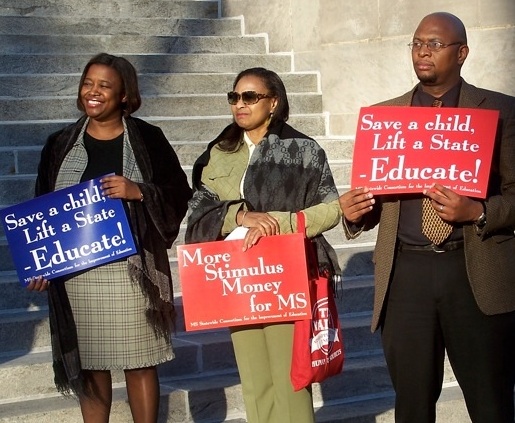JACKSON — Is academic tenure under attack? A number of university professors across Mississippi believe so.
The state College Board gave initial approval in December to policy changes that would reduce how much warning time is required to fire tenured and tenure-track professors for financial reasons.
There’s even in a bill in the Legislature that would eliminate tenure entirely.
The recent developments have some professors on edge.
A group called the Mississippi State Consortium for the Improvement of Education, which represents faculty, students and staff statewide, recently condemned the board’s actions as “a threat to both academic freedom and shared governance.”
“Tenure is at the core of our profession,” said University of Southern Mississippi professor Mark Klinedinst, a member of the group. “We have to do everything to protect it.”
Higher Education Commissioner Hank Bounds believes the changes are necessary in light of the current economic situation. Approximately 1,000 university employees will be cut statewide if the state College Board’s budget projections for the next three years hold true.
Those projections are a moving target and could prove worse.
“If the downturn is sharper than anticipated, then this (tenure policy change) gives campuses the ability to adjust accordingly,” Bounds said.
Bounds said his research into the tenure policy of other states — such as Tennessee and Georgia — indicates these changes are not radical.
“What we were talking about is not counter to what happens in other states,” Bounds said.
Universities don’t have to follow these changes, he said.
They can keep their own policies as they are now. The board unanimously approved the first reading of the changes in December and will take a final vote during a future meeting.
Some professors say they understand the difficult economic times, but believe that, in this case, the cure is worse than the disease.
“The IHL’s (state College Board’s) proposed language would begin to dismantle tenure as we know it,” said Delta State University Political Science Professor Garry Jennings, president of Mississippi’s chapter of the American Association of University Professors, with 105 professors statewide.
Two board proposals in particular have opponents irked.
One slashes from nine to six months the warning time universities must give tenured professors that they will be fired either because of board-declared financial exigency or program elimination.
The other enables universities to give 30 days notice to all tenure-track professors for lack of funds. Currently, notices work on a scale system with tenure-track professors, third year and above, getting nine months of notice.
Opponents to the policy changes say they will hinder the state’s efforts to hire faculty nationwide.
They also say it would imperil freedom of inquiry — the core academic ideal that tenure protects, professors say.
“Tenure is not a guarantee of employment. Tenure is the right to speak one’s mind freely and conduct potentially controversial research,” said USM English professor Stanley Hauer, citing “delicate issues of race or sex” as an example.
Bounds said he doesn’t understand why the question of academic freedom has entered the discussion.
“This isn’t an issue about attacking academic freedom,” Bounds said. “The issue is how we deal with the worst economic crisis of our lifetimes.”
For a few USM professors, the proposals open some recent wounds. Twelve tenured and tenure-track professors were placed on a list of budget cuts, compiled by an in-house budget planning group, in August. They were marked for termination because of program elimination for the 2010-11 academic year.
“I hope something like that doesn’t go through,” said Jonathan Beedle, a tenure-track occupational education professor in his fifth year. Beedle was on the list.
Because of the nine-month notice, subsequent negotiations between administrators and professors restored six of those positions, including Beedle’s.
Beedle said the story might have been different if he had only been granted 30 days of notice.
“I would have been out of a job,” Beedle said.
USM administrators are also expressing reservations about the policy.
Provost Bob Lyman said he believes that even if the policy changes are approved, USM will maintain its current tenure policies.
“Personally, I would be against changing the guidelines,” Lyman said.
“It doesn’t give terminated professors enough time to find jobs. I mean, you don’t have a chance with 30 days.”
Bounds said he wants to hear from people who disagree with the proposed changes.
“My door is always open,” he said. “I only ask for honest feedback.”
As for that bill, Rep. Becky Currie, R-Brookhaven, wasted no words in a terse 106-word bill — House Bill 329 — that would prohibit all universities and community colleges from granting tenure effective July 1.
It hasn’t received much traction, said Rep. Toby Barker, R-Hattiesburg, vice chairman of the Universities and Colleges Committee where the bill currently sits.
“You can never say that a bill is dead on arrival, but this is pretty close,” said Barker, who plans to fight it.
“Obviously this would cripple our state’s ability to recruit and retain faculty members,” Barker said.
Hauer agrees.
“It would make our university system the laughing stock of the nation,” he said. “The message it sends is incredibly harmful.”


Be the first to comment